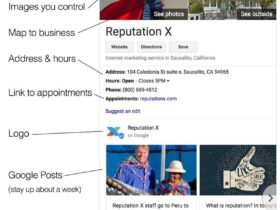When I was a bright-eyed MBA student in business school, one of our professors warned us that a decent number of us would end up accepting professional roles that conflict with our character at some point in our careers. I always considered myself a highly ethical, principled individual with an unwavering set of morals guiding my choices. So at the time, I found this hard to believe. Surely, no one would invest the time, energy, and money in an advanced business degree only to later settle for a role that compromised one’s integrity. Right?
During our careers, pursuing promising professional opportunities can compromise our own personal values and vice versa. People always say you should be true to who you are. However, being 100% true to who you are isn’t always as easy as it sounds when your job opportunities, professional image, or career advancement are on the line. However, make no mistake, the choices you make and the opportunities you say yes and no to will have a direct impact on your personal brand for years to come.
You Must Draw Lines In The Sand
Establishing clear boundaries is an important part of shaping your career. In my own career, while I haven’t had a lot of instances where I’ve been asked to do things that compromised my integrity per se, I have been asked to take on roles that I ultimately decided were misaligned with the type of professional I wanted to be.
For example, when I was just getting started in my former career as a brand manager, one of my main concerns about working in the consumer packaged goods sector was marketing products I didn’t feel comfortable marketing. So before I started exploring roles, I decided to draw a few lines in the sand and promise myself I would never market certain types of products like junk food, cigarettes, and alcohol.
Without getting too deep into the rationale behind each one of those, in a nutshell, it came down to just feeling like these products weren’t ones that I would want to consume myself nor were they products I would feel good persuading others to consume.
Standing Your Ground Has Its Limits
Holding rigidly to a set of principles can feel like the right thing to do in theory, but being too inflexible also has its downsides. It can come across as narrow-minded or even arrogant.
Later on in my career, I was presented with opportunities that certainly touched those lines I thought I’d drawn. For example, in one of the first large companies where I worked, I explicitly told a head of marketing that I did not want to be considered for roles on one particular brand because the products contained a lot of fat.
I had a good relationship with her, and I remember her sitting down with me over lunch one day and candidly telling me that despite my solid performance, my unwillingness to work on that specific brand would adversely affect my trajectory in the company. Still, I didn’t budge because I just didn’t want to market a product some might consider unhealthy.
Flexing Your Principles Does Happen
The idea of staying within certain boundaries may seem easy enough, but in your career, you might be surprised how things change. Sometimes, you draw lines in the sand only to find yourself crossing them in the future.
A couple of years later, in my efforts to quickly land a job when I moved to London, I took a role where I was marketing luxury desserts. Then, another role where I was marketing luxury ice cream. Are luxury desserts or ice cream the same as junk food? Well, they’re not exactly good for you.
If you’d asked me a few years prior if I would ever market unhealthy products, I would have said I was categorically against it. However, taking on these roles opened doors for me geographically and professionally, which is why I suddenly found myself marketing products I previously swore against.
It happens.
You may opt for roles you never imagined you would because they serve some other important purpose in your life. And while there’s nothing necessarily wrong about that in the short term, compromising who you are in the long run can start to chip away at your conscience.
Walking Away Shapes Your Narrative
Even if you consider yourself someone with strong morals, ethics, and rules you strictly follow, you may take a professionally advantageous role that may not break your principles, but certainly require you to flex them.
Saying no to opportunities is hard. It might feel like you’re closing a door without the guarantee of another one opening. At the same time, you have to be able to look yourself in the mirror every single day and feel good about how you’re deploying your energy and how you’re building your professional reputation.
I eventually ended up leaving those roles marketing desserts rather quickly. Marketing those types of products just wasn’t in line with what I stood for in my career and my life. And I certainly did not want to build my entire professional narrative around it.
Authenticity Fuels Strong Personal Branding
What’s the personal brand you’re trying to create for yourself, either as an employee, a freelancer, a career changer, or an entrepreneur? You may have said yes to an opportunity because it benefits you in some way when actually. But maybe, you should have said no because deep down, you just know, it’s not right for you, the person you’re trying to become, and certainly not the personal brand you’re trying to build.
Sometimes you say no to open up space for you to say yes to another opportunity that better aligns with who you are. Saying no can be a powerful way to protect your integrity and build the professional brand you desire. So reflect on your values and the personal brand you’re trying to create. Then, make the tough choices necessary to stay true to that vision.
Originally published at Forbes.















